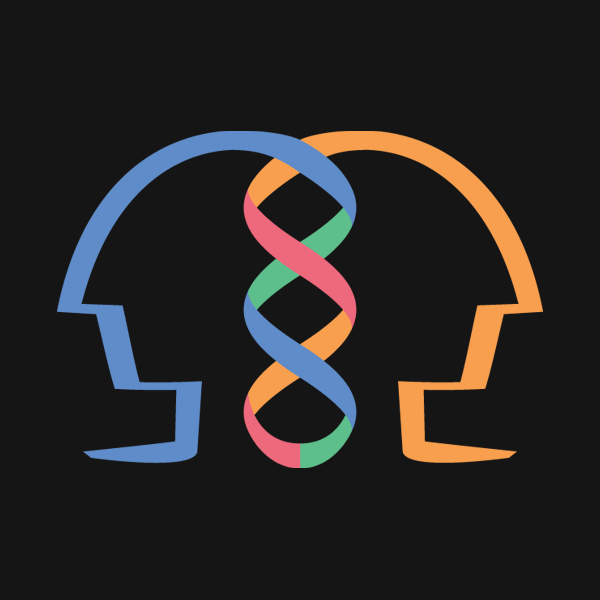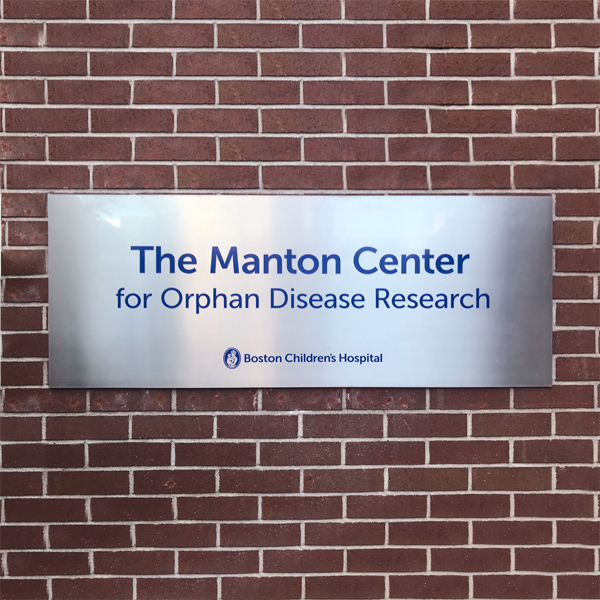Affiliated Centers
The study of genetic disease at Boston Children’s Hospital can be traced back to the description of Diamond-Blackfan anemia in 1938. In 1963, Boston Children’s Hospital introduced the first form of genetic therapy for Phenylketonuria (PKU). Two years later, in 1965, the Division of Clinical Genetics was founded; evolving into the Division of Genetics during the molecular biology revolution of the 1980s, which transformed and accelerated the study of genetics. A Genomics Program emerged at BCH in 2006. In 2013, the Program and the Division merged to become the Division of Genetics and Genomics. The Division continues to leverage alignment of genetics and genomics to grow current programs and create multiple new programs, placing Boston Children’s Hospital (BCH) at the forefront of pediatric precision medicine.
Specialized research centers concentrate expertise and technical resources toward specific disease and treatment goals. Here we highlight a few of them.
Allen Discovery Center for Human Brain Evolution
After an international competition, the Division of Genetics and Genomics was awarded a sizable grant from the Paul Allen Frontiers Program to support a center with the mission to identify the specific genetic changes responsible for the unique properties that define us as human.
The mission of the Paul G. Allen Discovery Center for Human Brain Evolution at Boston Children’s Hospital and Harvard Medical School is to apply innovative, multi-disciplinary approaches to answers these questions:
- When during human evolution did our modern brains evolve?
- What are the genes implicated in this evolution, and how do they compare to other primates?
- How does our experience and environment change the behavior of these genes, and what impact does that have on how our brains develop?
The Center is a full collaboration between Boston Children’s Hospital and Harvard Medical School, with three co-Principal Investigators: Christopher A. Walsh, the Director and co-PI; Michael Greenberg, co-PI, also Chair of Neurobiology at Harvard Medical School; and David Reich, co-PI and Professor of Genetics at Harvard Medical School. Dr. Greenberg is an international expert on the function of noncoding elements of the genome that control gene expression and learning and memory in neurons, while Dr. Reich is renowned for his studies on DNA from ancient humans, and the use of patterns of genomic changes to study ancient and archaic human history. The Center connects this study of genomic patterns and changes to the study of the effects of rare mutations on the normal development and function of the human brain, hence identifying evolutionarily dynamic parts of the human genome that also have essential neurological functions.
The Greenberg Lab >
Department of Neurobiology
Harvard Medical School
The Walsh Lab >
Division of Genetics & Genomics
Boston Children’s Hospital
The Reich Lab >
Department of Genetics, Harvard Medical School
Founded in 2004, spurred by the international Genome Project’s deciphering of the human genetic code, the Broad Institute established a new way of doing science. It spans some of Boston’s leading institutions (Harvard, MIT, and Harvard-affiliated hospitals) and scientific disciplines (biology, chemistry, medicine, computer science, and engineering). Today, the Broad community includes more than three thousand scientists, committed to advancing research in areas including infectious disease, cancer, psychiatric research, and cardiovascular disease.
The Broad Institute’s faculty members are all faculty members of MIT, Harvard or one of the Harvard-affiliated hospitals. They are full citizens of their home institutions – including having full teaching and other responsibilities. These faculty from Boston Children’s Hospital Division of Genetics and Genomics are associate members of the Broad:
- Pankaj Agrawal, MD, MMSc
- Gerard T. Berry MD
- Olaf Bodamer MD, PhD
- Elizabeth Engle, MD
- Jason Flannick PhD
- E. Alice Lee PhD, MS
- Christopher A. Walsh, MD. PhD
- Timothy W. Yu MMSc, MD, PhD

Clinical Research Program
While the majority of rare diseases have a genetic component, fewer than 5% have an FDA-approved drug treatment. The mission of our Clinical Research Program is to advance clinical research towards effective treatment for rare genetic disorders and inborn errors of metabolism. Our program strives to find treatments that will improve quality of life and overall health. We take pride in caring for medically fragile or at-risk patient populations.
New Website
The Genetics and Genomics Clinical Research Program website is scheduled to launch in Fall 2020.
Clinical Research Manager
Vera Anastasoiae
Email >
Manton Center for Orphan Disease Research
The Manton Center for Orphan Disease Research at Boston Children’s Hospital was created to develop new methods for understanding, diagnosing and treating rare genetic conditions and to apply this knowledge toward scientific advances with broad implications for human health.
The Manton Center is one of the first centers in the world solely devoted to the study of rare diseases. The Center fosters collaborations between investigators from across BCH to share ideas, resolve common challenges, and address orphan diseases from multiple perspectives. Senior scientists specialize in a wide range of areas including metabolic, neuromuscular, neurologic and immune disorders. The Center awards fellowships and research grants to help launch the careers of rare disease specialists, and to facilitate the discovery and development of more effective therapies for rare diseases.
Director
Alan H. Beggs, PhD
Sir Edwin and Lady Manton Professor of Pediatrics, Harvard Medical School; Director, The Manton Center for Orphan Disease Research, Boston Children’s Hospital.
The Molecular Genetics Core Facility is a non-profit core laboratory in the Division of Genetics & Genomics at Boston Children’s Hospital. We offer genomics services to academic and private research institutions. The majority of our users are investigators from Boston Children’s Hospital and other Harvard affiliates. We also serve academic and industry laboratories throughout the United States. We provide researchers with high-quality, low-cost genomic technology services (see below), and assist investigators with project design and linkage- and association-study analysis.
Our services support the study of rare disorders by providing a universal IRB protocol to facilitate enrollment of subjects with any rare condition into appropriate research studies, as well as infrastructure for specimen collection, a central disease registry and DNA repository, and assistance with state-of-the-art genomic testing.
- DNA sequencing
- Next-Gen sequencing
- Affymetrix
- Illumina
- whole-genome expression and genotyping microarray technology
- microsatellite genotyping
- high-throughput qPCR and SNP services on the Fluidigm Biomark System
- multiplex SNP genotyping on the Sequenom MassARRAY
- sample extraction and banking
Contact
Manager, Molecular Genetics Core Facility
Catherine Brownstein
Email >
Technician, Microarray and Sequencing Facilities
Kristin Cabral
Email >
Multidisciplinary Neurofibromatosis Program
Neurofibromatosis (NF) is a group of three conditions (NF1, NF2 and schwannomatosis) caused by a genetic mutation in certain genes. These can be inherited from an individual’s parents, or, in about half of cases, occur spontaneously during early development. Our Multidisciplinary Neurofibromatosis team at Boston Children’s Hospital offers comprehensive diagnostic evaluations, follow-up care, and genetic counseling for individuals with known or suspected NF.
The newly created NF Research Initiative was made possible by an anonymous grant for a five-year 10 million dollar program. The NFRI established an international consortium, headquartered at Boston Children’s Hospital, for multi-omic analysis of NF1-related tumors in an effort to create a large dataset and discover new treatments. The NFRI also supports interdisciplinary research through acceleration grants awarded globally, as well as young investigator grants.
Director, NF Research Initiative
David T. Miller, MD, PhD
Clinical Geneticist and Medical Geneticist, Division of Genetics and Genomics, Boston Children’s Hospital; Associate Professor of Pediatrics, Harvard Medical School.
Kabuki Syndrome is a rare congenital disorder (one in 32,000 births) of genetic origin. It is so named because of the facial resemblance of affected individuals to stage makeup used in the traditional Japanese theatrical form, Kabuki. The Roya Kabuki Program at Boston Children’s Hospital is a multidisciplinary, patient-centered initiative for children and adults with known or suspected Kabuki syndrome.
The program integrates translational research efforts to understand underlying mechanisms and to identify novel therapies. Subspecialists in Cardiology, Ophthalmology, Neurology, Neuropsychology, Gastroenterology, Nutrition and others meet on a regular basis to discuss individual patients. We currently follows over 50 families with Kabuki syndrome, and some 200 families are enrolled in ongoing translational research projects. The program has launched the largest natural history study for Kabuki syndrome to achieve clinical trial readiness.
Co-Directors
Olaf A. Bodamer, M.D. Ph.D., FACMG FAAP
Park Gerald Chair in Genetics & Genomics and Associate Chief of Genetics & Genomics, Boston Children’s Hospital; Associate Professor, Harvard Medical School.
Emanuela Gussoni, PhD
Assistant in Medicine, Boston Children’s Hospital; Assistant Professor in Pediatrics, Harvard Medical School.
The Undiagnosed Diseases Network is funded by the National Institutes of Health Common Fund. Its purpose is to bring together clinical and research experts from across the United States to solve challenging medical mysteries using advanced technologies. The network’s coordinating center is based at the Department of Biomedical Informatics at Harvard Medical School.
The Division of Genetics and Genomics hosts the Boston Children’s Hospital arm of the Harvard Teaching Hospitals Clinical Center of the UDN. Multiple members of the Division, notably Alan Beggs and Joan Stoler, are involved in this nationwide collaboration between twelve clinical sites, partnered with four research cores, to help provide diagnosis and treatment for patients with unknown disorders. Members of the Division work closely with providers across the hospital to lead multidisciplinary evaluations of children with undiagnosed diseases through a combination of careful clinical examination, genetic and genomic analysis, environmental exposure analysis, proteomics, metabolomics, systems biology, and network medicine analysis.
Lead Clinician, UDN
Joan Stoler, MD
Clinical Geneticist, Division of Genetics and Genomics, Boston Children’s Hospital
Associate Professor of Pediatrics, Harvard Medical School.








